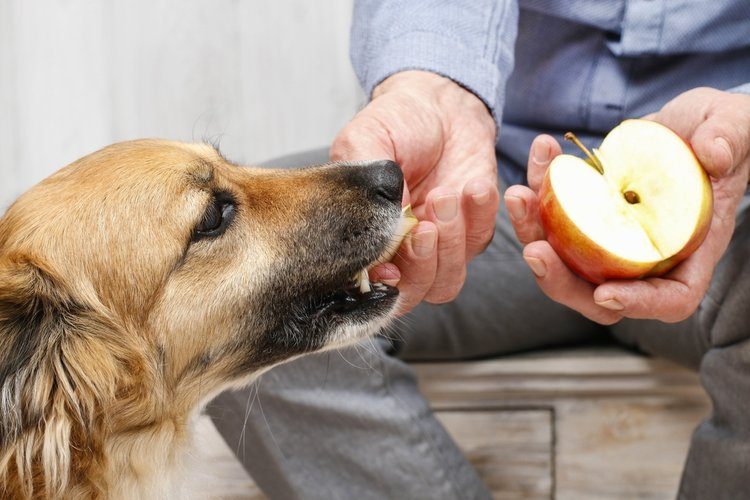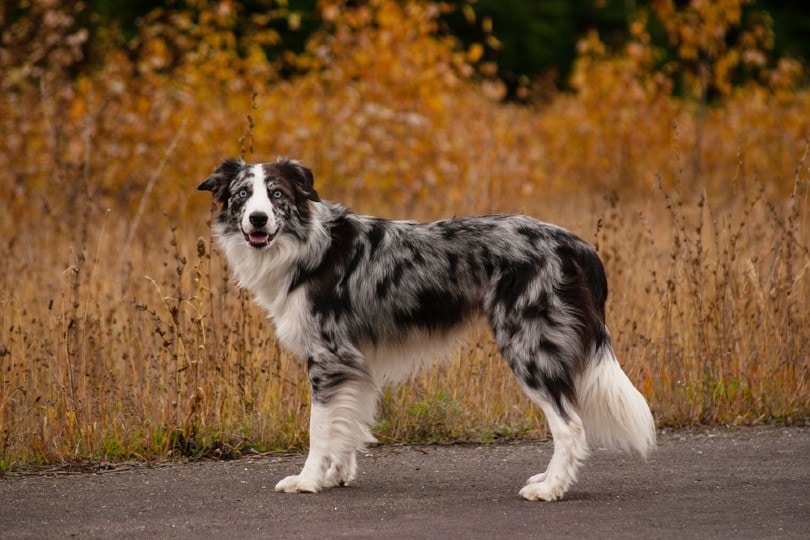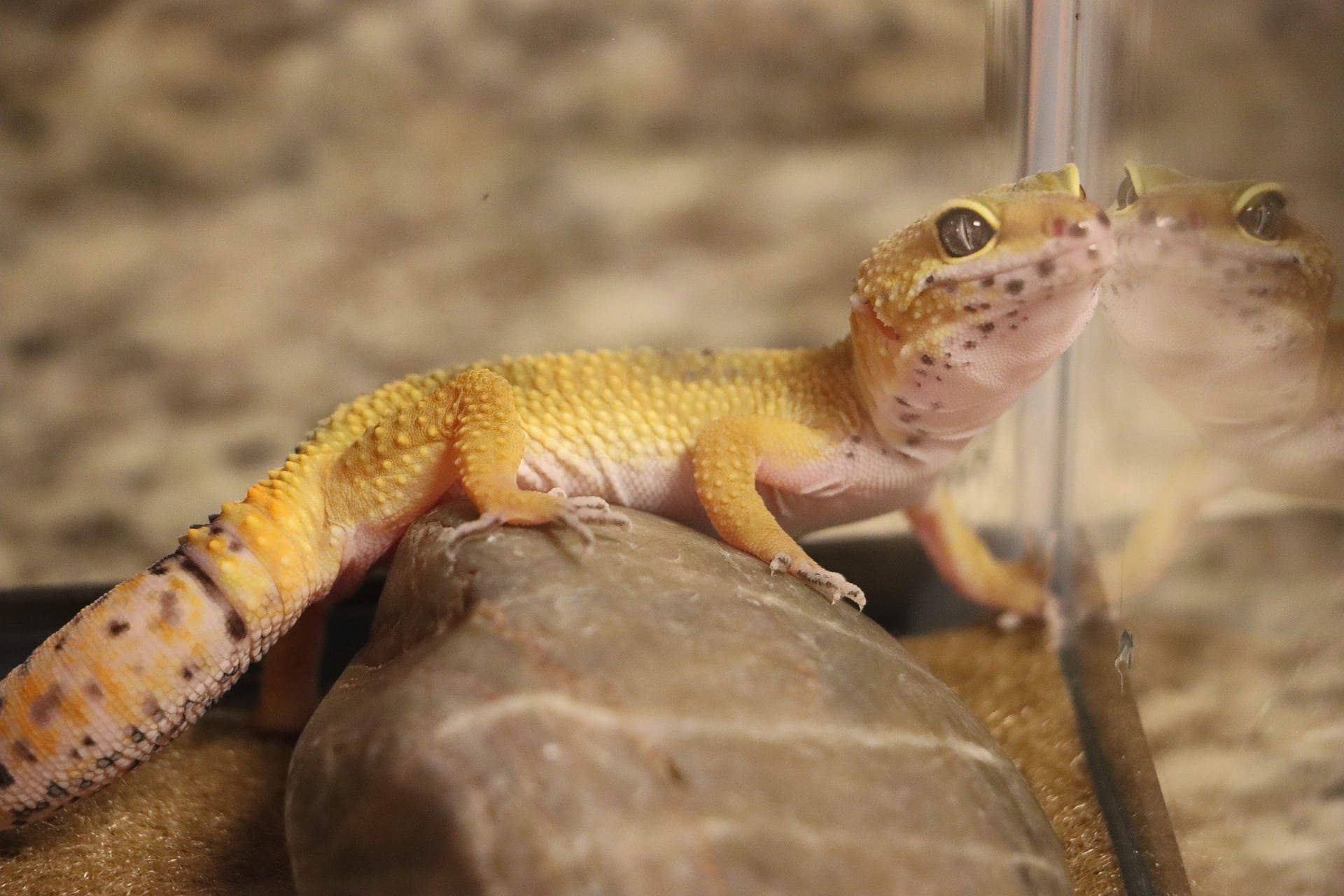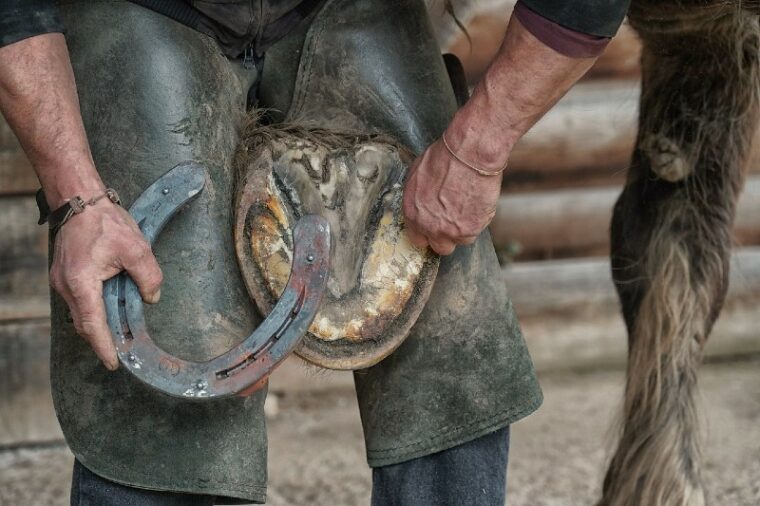
You may have wondered why horses need shoes and just what purpose a horseshoe serves. Just like a human’s fingernail, horse’s hooves constantly grow, and in the wild, they get naturally worn out by the terrain on which they live. Domesticated horses need shoes to protect their hooves from the rugged terrain that they do not encounter in the wild, such as concrete.
Not all horses need shoes, though, and the big question is whether your horse needs them and whether they are harmful to your horse. In this article, we’ll look at why some horses need shoes and others don’t, what horseshoes are made of, and what their purpose is. Let’s get started!
What Are Horseshoes?
Horseshoes are U-shaped plates that fit onto your horse’s hooves. They are usually made of steel or iron, but sometimes aluminum or rubber, and are used to protect your horse’s hooves from hard surfaces. Horseshoes are fitted by a farrier, a skilled expert in horse foot anatomy that makes and fits custom horseshoes and trims your horse’s hooves. The shoes are fitted onto the outer part of your horse’s hooves using nails, but don’t worry! The outer part of your horse’s hoof does not feel pain, and fitting shoes does not hurt your horse.
Various types of horseshoes are used for specific purposes, like sports or horses with specific conditions, including rim shoes, trailer shoes, and square shoes.
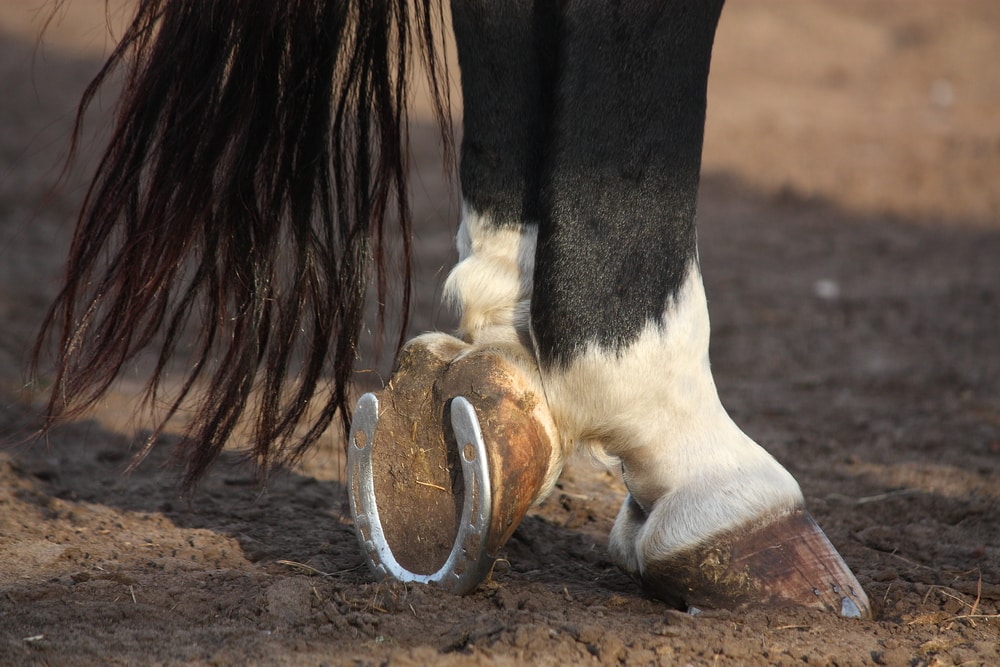
The Purpose of Horseshoes
There are numerous reasons for shoeing your horse, including protecting their hooves from damage, improving traction, and preventing injury. This is especially true for horses that perform repetitive motions with their feet in events such as dressage and showing.
Wild horse’s hooves are maintained naturally because they move through miles of varying terrain every day, but domestic horses need shoes and regular trimming to keep their hooves comfortable and pain-free. Of course, this also depends on the individual horse, and less athletic horses will need less maintenance. Depending on the activity level of your horse, they will need a hoof trimming every 4-8 weeks, and unbalanced (untrimmed) hooves can be disastrous for your horse. Uneven hooves can quickly lead to injury and even fungal and bacterial infections.
That said, there is controversy around the practice of shoeing, and there are some equestrians that believe that horses should not wear shoes. They say that if your horse’s shoes are trimmed and maintained correctly, there is no need. Even though it has been proven that shoeing does not cause any pain or even stress to most horses, some people still maintain that the practice is inhumane.
Should You Shoe Your Horse?
Whether to shoe your horse largely depends on the individual horse and what the animal is being used for. Pleasure horses, for example, do not necessarily require shoes, and routine trimming and maintenance should be perfectly suitable for them.
That said, some horses have diseases or conditions that require the use of shoes to relieve pain, while others may have natural deformities, like smooth hooves or muscular issues that shoes can help with. Also, horses that are carrying heavy weights regularly need shoes to stop their hooves from wearing down rapidly, and so do horses that need extra traction in mud, snow, or ice or while trail riding.
Regardless of whether your horse needs shoes, they still require regular maintenance, as domestic horses do not experience the conditions that will wear their hooves down naturally.

Are There Risks Involved With Shoeing?
Shoeing your horse is more expensive than regular trimming, and there are certainly a few risks involved. There is always the chance of misplacing a shoe when attaching it, which can cause pain and discomfort later. Also, your horse may mistakenly pull a shoe off their hoof, potentially causing muscle or tendon injury or even tear up the hoof wall.
Most farriers, however, are experts who are highly dedicated to their job, and there is little risk involved with an experienced farrier. There are risks and benefits involved with both shoeing and letting your horse go barefoot, and in the end, it’s what’s best for the horse that matters.
- You might also like: How Much Does It Cost to Shoe a Horse?
Final Thoughts
While domestic horses don’t necessarily need shoes, they do certainly need routine trimming and maintenance of their hooves. Whether you decide to shoe your horse, it’s essential to find a good farrier whom you trust.
There are numerous reasons and benefits in shoeing your horse, and they can help extend the life of and protect your horse’s hooves. There are few drawbacks other than the cost, and if your horse is lifting any heavy loads, being used for trail riding, or involved in any equestrian sports, most experts agree that shoes are essential.
Related Horse Reads:
- Best Horseshoes for Flipping – Reviews & Top Picks
- 6 Best Horse Blankets
- Why Do Horses Have Manes? (The Answer Might Surprise You)
Featured Image Credit: aglaya3, Pixabay


